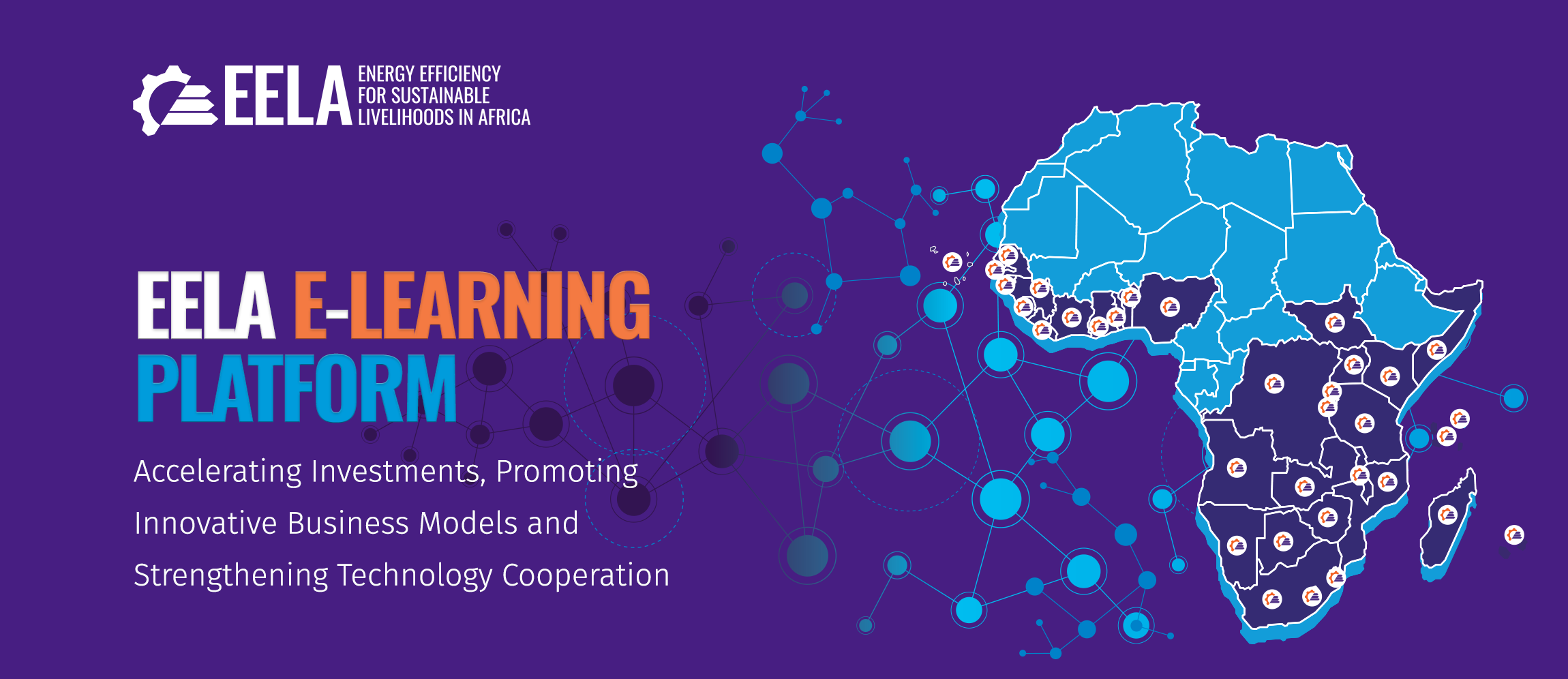
Introduction
The Energy Efficient Lighting and Appliances (EELA) project aims to create market and institutional conditions to enable a transformation of the sector to stimulate increased diffusion of energy efficient lighting products and appliances across all sectors in the East African Community (EAC) and Southern African Development Community (SADC) Regions. The EELA project brings regional support to private sector led activities that leads to increased use of energy efficient high-quality lighting and appliances through regional regulatory and trade harmonization interventions.
The EELA project is funded by the Swedish International Development Cooperation Agency (Sida) and implemented by the United Nations Industrial Development Organisation (UNIDO) in collaboration with the SADC Centre for Renewable Energy and Energy Efficiency (SACREEE) and the East African Centre of Excellence for Renewable Energy and Efficiency (EACREEE).
Background
National Determined Contributions (NDCs) are national climate plans highlighting climate actions, including climate related targets, policies and measures governments aim to implement in response to climate change and as a contribution to global climate action. Each Party to the Paris Agreement is required to establish an NDC and update it every five years.
The Paris Agreement requires each country to prepare, communicate and maintain successive NDCs that it intends to achieve. Governments pursue domestic mitigation measures, with the aim of achieving the objectives of such contributions. Energy efficiency is key to achieving the ambitions set out in the NDCs and the benefits of which go beyond emissions to include energy savings, economic and health benefits. Sustainable Development Goal 7 target calls for global progress on energy efficiency by doubling the rate of improvement in energy efficiency globally by 2030. To achieve this goal, energy efficiency should be included in the NDCs of EAC and SADC member states.
IEA indicates that current NDC targets will not limit the increase in the global average temperature to well below 2 C by the end of the century and also projects suggest that that current NDC targets if achieved only contribute to an annual intensity improvement of only 2%. According to the IEA Bridge Scenario, energy efficiency could contribute to 48% of greenhouse gas emissions by 2030.
A study commissioned by ClimateWorks Foundation to Fraunhofer ISI, in line with scenarios limiting temperature increases to 2 degrees Celsius above pre-industrial levels until 2050, shows that an aggressive global energy efficiency pathway could lead to annual greenhouse gas emissions reduction of 15.4 billion tonnes of CO2-equivalent (GtCO2-eq.) by 2030 (equivalent to almost 50% of global CO2 emissions from fuel combustion in 2013), resulting in cumulative savings of USD 2.5-2.8 trillion and annual savings of USD 440-480 billion by 2030. Energy efficiency contributes to the reduction of energy bills, greenhouse gas emissions and contributes to a healthy wellbeing of people. Energy efficiency should be planned and implemented in all sectors of the economy such as industries, buildings, agriculture, service sector, etc.
Webinar Objectives
The main objective of the webinar is to create awareness on the relevance of having energy efficiency especially energy efficient lighting and appliances to national determined contributions (NDCs) and also motivate key stakeholders to support the implementation of energy efficiency targets.
Draft Agenda
Moderator: Mr. Ndivhuho Tshikovhi, Project Associate, UNIDO
- Opening and Welcome remarks (10.00 - 10.10)
- Ms. Karin Reiss-Hambala, Program Coordinator, EELA Project, UNIDO
- EELA Project and it's contribution to country's NDCs (10.10 - 10.30)
- Mr. Denis Ariho, Lead Technical Expert for EAC, EELA Project, EACREEE [Slides]
- Case studies on translating EELA targets in the NDCs into EELA projects (10.30 - 10.55)
- Mr. David Levy, Country Engagement Finance Specialist, NDC Partnership Support Unit [Slides]
- Overview of the relevance of EELA in the NDCs (10.55 - 11.20)
- Mr. Thibaut Voïta, Independent Consultant [Slides]
-
- Country Specific NDC and energy efficiency targets. Is EELA reflected in the NDC? (11.20 - 11.50)
- Mr. William Mugabo, Rwanda, Ministry of Environment [Slides]
- Mr. Simasiku Titus Mukwaso, Botswana, Ministry of Mineral Resources, Green Technology and Energy Security (MMGE)
- Closing remarks (11.50 - 12.00)
- Mr. Kuda Ndhlukula, Executive Director, SACREEE




